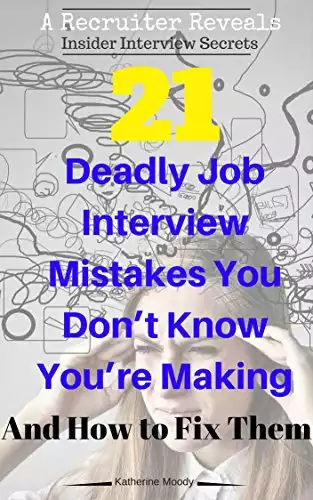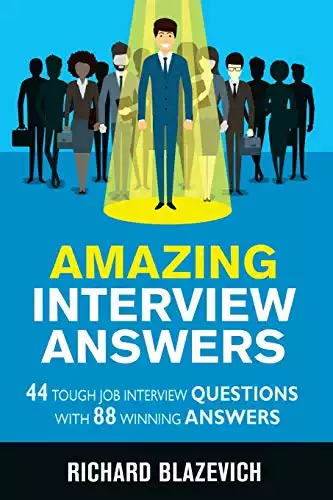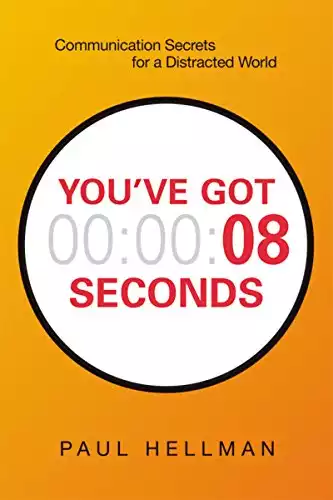- 1. Your Appearance:
- 2. Your Handshake:
- 3. Your Story:
- 4. Do Your Homework:
- 5. Your Body Language and Interpersonal Skills:
- 6. Know Why You are the Best Choice for the Position:
- 7. Know Why You Want to Work There:
- 8. Don't be Late or Too Early:
- 9. Don't Ask the Wrong Questions in Your First Interview:
- 10. Know
Your Resume : - Additional Resources
We may receive compensation when you click on links to products from our partners. For more information, please see our disclosure policy.
Securing a new job that offers greater responsibility and higher compensation is a priority for many. However, despite attending numerous interviews, you might find yourself struggling to make a lasting impression. So, what’s the secret to gaining an advantage in your interview? The most insightful interview tips often come from those who conduct interviews regularly: recruiters and corporate HR professionals. Successfully getting past this initial stage is crucial, as failing to impress them means you won’t have the chance to meet with the hiring manager. What sets one candidate apart or leads to another’s elimination? To shed light on these queries and more, consider the following expert advice.
No matter how good you look, how much research you've done, or how perfectly your qualifications match the job description, if you're not prepared with great answers to the toughest interview questions, you won't get the job.
1. Your Appearance:
Dressing for a
- Overly Casual Clothing: Avoid wearing jeans, T-shirts, sneakers, or flip-flops as they may convey a lack of seriousness or professionalism.
- Loud or Flashy Attire: Stay away from excessively bright colors, large logos, or anything that distracts from your ability to be the focus of the interview.
- Revealing Clothes: Outfits that are too tight, short, or show too much cleavage are inappropriate and may send the wrong message.
- Strong Perfumes or Colognes: Avoid wearing strong scents as some people may be allergic or find it distracting in a close environment.
- Unkempt Appearance: Make sure your clothes are clean and ironed, your hair is neat, and your overall appearance is tidy and professional.
2. Your Handshake:
A proper handshake can set the tone for your interview. It should be firm, conveying confidence without being overly forceful, and suitable for everyone, regardless of gender. Ensure it’s brief and not prolonged. For those with sweaty palms, it’s wise to dry them before the interview. Be aware of various handshake styles, recognizing which ones to adopt and which to avoid for a positive impression.
Handshakes to Avoid
- The “Bone Crusher”: An overly forceful grip that can be painful and convey aggressiveness rather than confidence.
- The “Fish”: A limp, lifeless handshake that may be perceived as a lack of enthusiasm or confidence.
- The “Long Hauler”: Holding onto the handshake for too long, making the interaction awkward and potentially invasive.
- The “Sweaty Palm”: A wet handshake can be off-putting; if you’re prone to sweaty palms, try to dry them beforehand.
- The “Twister”: Overly enthusiastic handshakes involving twisting or turning the other person’s hand can be disorienting and are best avoided.
It’s no secret that job interviews are nerve-wracking, especially if you feel the position is a much-needed stepping stone into a fulfilling product management career. Take a look at CareerAlley's interview resources to improve your interview skills and nail your next interview.
3. Your Story:
Certainly, the concept of the “30-second elevator speech” is familiar to many (refer to “Do you have your 30-second Elevator Speech?”). If you haven’t yet perfected and memorized yours, now is the crucial time to do so. During the interview, you’re likely to be asked for a succinct summary of your experience. This is the prime moment to deploy your elevator speech, particularly emphasizing why you are the ideal candidate for the position (as detailed in point #6). This segment is pivotal to the interview’s outcome and significantly influences your likelihood of advancing to the shortlist.
What do you say when they ask you the inevitable question “What do you do?” If your 30-second answer is boring, cringe-worthy or forgettable, the rest of your preparation is worthless.
4. Do Your Homework:
Neglecting to research the company and the hiring manager before your interview is a critical misstep. It’s essential to conduct thorough research on both the organization and the interviewers well in advance. This preparation isn’t just for public companies; platforms like LinkedIn offer a treasure trove of information on a wide array of organizations. Furthermore, endeavors to uncover insider insights about the company’s culture and employee experiences. Such knowledge not only demonstrates your genuine interest but also equips you with valuable context that could be pivotal in your discussion (see also “15 Tips for Improving Your Job Search“). This effort will significantly bolster your performance in aspect #7 discussed later.
Interview Preparation
- Research the Company: Dive deep into the company’s history, mission, values, and recent achievements to show your genuine interest and preparedness.
- Understand the Role: Carefully review the job description to align your skills and experiences with what the employer is seeking.
- Practice Common
Interview Questions : Prepare answers for typicalinterview questions , focusing on your strengths, achievements, and how you can contribute to the company. - Plan Your Journey: Ensure you know the interview’s location, how to get there, and how long the journey takes to arrive on time, stress-free.
- Dress Appropriately: Choose an outfit that fits the company culture and the position you are applying for, leaning towards professional over casual.
5. Your Body Language and Interpersonal Skills:
Second to your initial handshake, your body language is a key part of the interview. Maintaining eye contact (or semi-contact) is critical and there is a delicate balance between staring and keeping eye contact, so you may want to practice with friends. Looking away too often at the walls, table or anything else can hurt “the first impression“.
The Obvious “Don’ts”:
- Don’t bite your nails, as it can signal nervousness or lack of confidence.
- Avoid slouching; it may be interpreted as disinterest or lack of enthusiasm.
- Refrain from pointing directly at people, which can be seen as aggressive or rude.
- Don’t cross your arms over your chest, as this can appear defensive or closed-off.
- Avoid avoiding eye contact, which might suggest dishonesty or lack of confidence.
6. Know Why You are the Best Choice for the Position:
The follow-on from #4 above (Do Your Homework) is to leverage everything you’ve learned about the company, the job, and the interviewer so that you are convinced that you are the best choice for the position. Again, the delicate balance is between letting your interviewer know you are the best choice without sounding conceited. There is only one thing the interviewer wants to know – that you are the right person for the role. This is not just limited to your job knowledge and experience, but also your interpersonal skills and how you would “fit” in the overall
7. Know Why You Want to Work There:
Another frequently asked question during interviews concerns your reasons for wanting to work at the company. You should come well-prepared, drawing on points #4 and #6 as a basis for your response. Avoid attempting to formulate your answer on the spot during the interview; instead, prepare your response in advance.
Some Examples
- Highlight the company’s mission and how it aligns with your personal values and professional goals.
- Mention specific projects or initiatives the company is involved in that excite you and match your skills.
- Discuss the company’s culture and environment, emphasizing why it’s a perfect fit for your working style.
- Point out opportunities for growth and learning within the company that you look forward to exploring.
- Acknowledge the company’s
leadership and innovation in its field, expressing your desire to contribute to its continued success.
Sample Response
“I am particularly drawn to this company because of its commitment to innovation and sustainability, which aligns closely with my own professional values. The cutting-edge projects you’ve launched in renewable energy sources are incredibly inspiring and reflect my passion for environmental advocacy. Moreover, the inclusive culture and emphasis on continuous learning you’ve cultivated here resonate with me deeply. I admire the company’s forward-thinking
leadership in the industry and am eager to contribute to its ambitious goals. Joining yourteam offers the unique opportunity for personal and professional growth in an area I am deeply passionate about, making it the ideal place for me to advance my career while contributing to meaningful change.”
8. Don’t be Late or Too Early:
Nothing annoys a hiring manager more than showing up late for an interview (with showing up too early a very close second). If you have the time, several days before the interview you should take a trial run visit to the interview location. Knowing exactly where the interview is located, how to get there, and how long it takes to get there takes a huge pressure off when the interview day arrives. Also, factor in any building security time delays as you will most likely need to sign in when you arrive and this could take a while if there is a long line in the lobby.
9. Don’t Ask the Wrong Questions in Your First Interview:
You’re likely familiar with the adage, “There’s no such thing as a stupid question.” However, it’s important to note that indeed, there can be ill-timed or inappropriate questions. The timing of certain inquiries is crucial. Questions regarding benefits, vacation time, and similar topics are more suitable for later stages of the interview process. Meanwhile, other questions are pertinent to the initial interview. It’s also vital to recognize that some questions should never be posed at all. Due to the extensive nature of these lists, I’ve included some links for further exploration:
- The 10 Worst Questions to Ask During An Interview
- 14 Challenging Job Interview Questions With Answers
- Ace Dreaded Interview Questions
10. Know Your Resume :
This may seem like an unusual suggestion, but it’s astonishing how many individuals “forget” what they’ve written on their resumes. It’s crucial to review
Additional Resources
-
 $15.99Prepare yourself to answer any interview question with a response that makes the reason the company should hire you clear. Winning Answers to 500 Interview Questions will teach you how to become a more confident interviewer.Learn More
$15.99Prepare yourself to answer any interview question with a response that makes the reason the company should hire you clear. Winning Answers to 500 Interview Questions will teach you how to become a more confident interviewer.Learn MoreWe earn a commission if you click this link and make a purchase at no additional cost to you.
07/26/2024 06:35 am GMT -

$10.00$8.30Buy on AmazonSmall Mistakes, Big Consequences for Interviews is a lighthearted look at the top 20 interviewing mistakes that people make without realizing the potential consequences. Learn how to identify these common character mistakes that can make or break your interview—and hiring prospects.
We earn a commission if you click this link and make a purchase at no additional cost to you.
07/26/2024 05:46 am GMT -
 Buy from Amazon$12.88
Buy from Amazon$12.88We earn a commission if you click this link and make a purchase at no additional cost to you.
07/26/2024 04:06 pm GMT -
 Ace your next interview
Ace your next interviewOur AI Job Interview Coach is designed to help you train and excel in any job interview from the comfort of your home. With personalized coaching and expert guidance, you'll be confidently prepared to make a lasting impression on your potential employer.
We earn a commission if you click this link and make a purchase at no additional cost to you.








